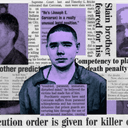
Courts are failing badly in keeping junk psychological science out of the courtroom in criminal cases, permitting the admission of psychological tests that have never been reviewed for reliability and others that have been found unreliable, a recent study reports. Among the problematic tests, another group of psychologists write, is a “psychopathy checklist” commonly used by prosecutors to argue that a defendant poses a future danger to society and should be sentenced to death.
The article, Psychological Assessments in Legal Contexts: Are Courts Keeping “Junk Science” Out of the Courtroom?, which was published February 15, 2020 in the Association of Psychological Science journal, Psychological Science in the Public Interest, looked at 364 psychological assessment tools psychologists reported having used in legal cases. It found that nearly a quarter of the tests were considered unreliable, one-third lacked general acceptance in the field of psychology, “and only about 40% ha[d] generally favorable reviews of their psychometric and technical properties.” Yet, the researchers wrote, legal challenges to the tests were raised in only 5.1% of the 876 state and federal cases reviewed in which the evidence was presented, and those challenges failed about two-thirds of the time.
“There’s a lot of stuff that looks like it’s junk and should be filtered out by the courts, but it’s not being filtered out,” said Arizona State University psychology professor Tess Neal, the lead author of the study.
One controversial psychological test, the Hare Psychopathy Checklist — Revised (PCL – R), came under fire in the American Psychological Association’s journal, Psychology, Public Policy, and Law. In a joint statement first published on-line on January 30, 2020, thirteen expert psychiatrists and psychologists wrote that while the test may have general usefulness in measuring psychopathy “as a construct,” it is “inappropriate [to use] the PCL – R to draw conclusions about an individual’s risk for committing serious violence in high-security custodial facilities.” Such conclusions are often critical in capital sentencing determinations in states such as Texas in which finding that a defendant poses a continuing threat to society is a prerequisite to imposing a death sentence.
The experts criticize the PCL – R as plagued by adversarial allegiance — mental health witnesses called by the prosecution will rate a defendant’s level of psychopathy higher than defense experts will during “evaluations of the same person, made around the same time, and even when made on the same information base.” They also say that “the association between PCL – R scores and serious institutional violence is negligible,” making the test unreliable as an indicator of whether a defendant will actually commit violence in prison. The PCL – R “cannot make predictions that an individual will engage in serious institutional violence with any reasonable degree of precision or accuracy,” they say, “and should not be used for this purpose in capital sentencing evaluations.”
Experts in psychology have long argued that predictions of future dangerousness are junk science, and their use in capital sentencing proceedings continues to create serious constitutional concerns. On February 22, 2017, the U.S. Supreme Court overturned the death sentence imposed in Texas on Duane Buck, whose trial was tainted by racial bias when the defense’s own psychologist testified that Buck posed a future danger because he was black. On August 19, 2016, the Texas Court of Criminal Appeals stayed the execution of Jeffery Wood to permit him to litigate claims that the future dangerousness predictions of the state’s expert — who had been expelled from state and national professional associations for his unscientific and unethical future dangerousness predictions in the past — constituted false scientific evidence whose use violated due process.
David DeMatteo, Stephen D. Hart, Kirk Heilbrun, Marcus T. Boccaccini, Mark D. Cunningham, Kevin S. Douglas, Joel A. Dvoskin, John F. Edens, Laura S. Guy, Daniel C. Murrie, Randy K. Otto, Ira K. Packer, and Thomas J. Reidy, Statement of Concerned Experts on the Use of the Hare Psychopathy Checklist — Revised in Capital Sentencing to Assess Risk for Institutional Violence, Psychology, Public Policy, and Law, January 30, 2020; Christina Larson, Courtroom psychology tests may be unreliable, study finds, Associated Press, February 16, 2020; Tess M.S. Neal, Christopher Slobogin, Michael J. Saks, David L. Faigman, Kurt F. Geisinger, Psychological Assessments in Legal Contexts: Are Courts Keeping “Junk Science” Out of the Courtroom?, Psychological Science in the Public Interest, February 15, 2020.



